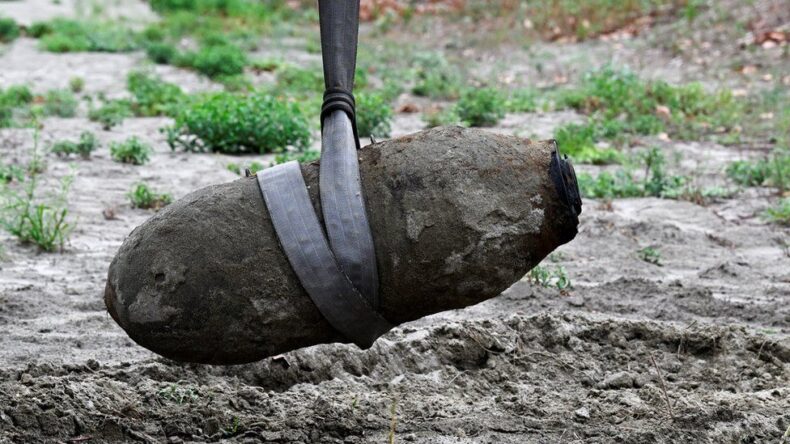Extreme drought has revealed an unexploded World War Two (WW2) bomb in an Italian river.

Fears about the effects of climate change have increased as a result of unusually hot weather and low rainfall levels in northern Italy. Not only have record-breaking temperatures and burned fields been brought on by this summer’s heatwaves, but the drought-stricken waters of Italy’s Po River are now so low that a WW2 bomb that had been submerged in them was also discovered.
Discovery of the bomb:
Fishermen discovered the 450 kilograms bomb on the banks of the River Po. The 650km long river has dried up in large portions due to Italy’s worst drought in 70 years.
The 450-kilogram bomb, which was found nearby the northern town of Borgo Virgilio, close to the city of Mantua, was neutralized by military experts on Sunday and then detonated under controlled circumstances.
Detonating the bomb wasn’t a simple procedure. According to the army, about 3,000 neighboring residents were evacuated in preparation for the disposal operation. The area’s airspace was closed, and traffic on a nearby state road and train as well as on that section of the waterway came to a stop.
The bomb was US-made:
The US-made weapon, which the Italian army claimed had 240 kilos of explosive, had its fuse removed by bomb disposal experts. The weapon was then moved by the bomb squad and destroyed in a quarry in the nearby municipality of Medole, about 45 kilometers away.
Giancarlo Mantovani, director of the Po Delta drainage collaboration, provided an overview of the condition along the river last week. The entire ecosystem that lived around a freshwater environment, as we had in this land, has vanished, according to him, along with the vegetation on the riverbanks, amphibians, and birds.
The Po is the longest river in Italy, flowing from the southwest Alps to the Adriatic Sea. However, due to the unprecedented drought this year, portions of the riverbed have expanded and are now completely dry.
The Po, which irrigates around one-third of the nation’s agricultural output, was the subject of an emergency declaration by Italian authorities last month.
Farmers in the Po Valley claim that salty seawater is already seeping into the river and harming crops because its currency has become so weak as a result of the heat and lack of rainfall in recent months.













